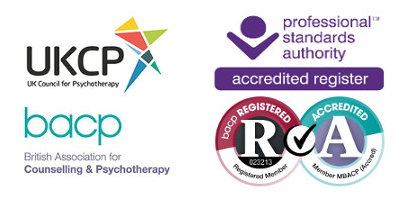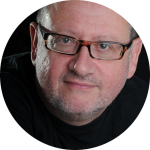Therapy for Eating Disorders in London
Counselling for Eating Issues, Binge Eating, Compulsive or Emotional Eating, and Support for Intuitive Eating with Marcus
Therapy for Eating Disorders addresses the relatively milder forms of anorexia and bulimia nervosa, where medical or psychiatric intervention is not considered necessary. You are able to function reasonably well in many areas of your life, but eating issues are spoiling your happiness and satisfaction with life.
- Does it ever strike you that the only time you’re not thinking about food is when you’re eating?
- Do you ever wonder what weight you’d be if you had a healthier relationship to food?
Eating should be a delicious pleasure that you can experience every day of your life, without guilt or shame and without doing harm to yourself.
As a psychotherapist Marcus works with issues around eating, and eating disorders, in creative and effective ways, in order to help you move on from an unhealthy, obsessive and damaging relationship with food.
The road through therapy leads from Emotional Eating to Intuitive Eating.
What Causes Emotional Eating?
Emotional Eating is when we use food to either manage or numb out difficult emotions. Simply living life entails having emotions and sometimes they’re not nice ones – grief, sadness, envy, shame, anger. Often we don’t understand our feelings, don’t know how to express them or don’t have the opportunity to express them healthily and safely.
Emotional Eating (Compulsive Over-eating or Under-eating) is in many ways an effective method for controlling life, in order to make life more bearable for us, by numbing our feelings. The numbing is achieved by either filling ourselves up or tensing ourselves up to not feel our hunger.
“Self-care is never a selfish act. It is simply good stewardship of the only gift I have.” Parker Palmer, educator and activist
Intuitive Eating is when we are truly connected to our needs and wants, and able to focus on meeting or satisfying them. We experience our appetite rather than override it, and we can attend to it without shame or guilt.
When we practice Intuitive Eating, we feel safe with ourselves, and don’t need to over-control our world.
One of the factors that keeps us in a state of Emotional Eating is a psychological attachment to a certain type of ‘drama’:
- Craving is ‘drama’, fancying something is not.
- Dieting is ‘drama’, eating well is not.
- Avoiding social engagements (you’re on a diet, you’ve no nice clothes) is ‘drama’, enjoying life is not.
- Procrastination is ‘drama’, taking yourself gently by the hand saying ‘Come on, let’s go for a walk’ is not.
- Overreacting to your slipups is ‘drama’, ignoring them is not.
- Perfectionism about your eating or about your body is ‘drama’, accepting yourself is not.
- Complaining of lack of ‘me time’ is ‘drama’, taking time for yourself is not.
How to Learn Intuitive Eating
The key eating skill to learn, or possibly re-learn, is how to tune into your body, especially the sensations we call Hunger and Satisfaction.
In therapy you will learn to gauge your hunger, and practise eating what you want and stopping when you don’t want any more. It’s a natural ability you’re born with, but that attunement to yourself has become lost or distorted in the course of your life.
Usually certain contexts make it easier to learn to tune in and listen to your hunger and your satisfaction. For example, a calm interlude of time, when you can sit at a table and eat off a plate, makes it harder to distract yourself from your body’s sensations.
In the course of therapy for eating disorders many obstructive and unhelpful beliefs can emerge, which get addressed using a number of therapeutic approaches. In many cases there are childhood memories or significant associations that reinforce your beliefs and assumptions. For example, thoughts such as:
- ‘I’ll be criticised if I don’t finish what’s on my plate’
- ‘I’m bad if I eat as much chocolate as I’d like’
- ‘It’s weak to eat between meals’ and so on.
There can be a deeper layer of beliefs that also need exploration and airing, e.g.
- ‘I am weak’
- ‘pleasure is a bad thing’
- ‘I am unworthy and unloveable’
- ‘sitting at a dinner table has distant but real echoes of childhood unhappiness for me’
You very likely have your own list of personal taboo foods, by the way, not just chocolate, but numerous foods that you think you should avoid.
How can I help someone with an eating disorder?
If someone you care about is suffering from eating issues or an eating disorder, encourage them in a supportive way to reach out for professional help, and do everything you can to support them. The best attitude to try to maintain is to be honest, caring and often also firm. These are many useful resources online, for example Eating Disorder Hope website or this help guide ‘Supporting a partenr with an eating disorder‘, It may also be very helpful if you come for some sessions with Marcus in order to sort out your own thoughts and feelings, and so that you don’t yourself get overwhelmed by the situation.
Therapy for Eating Disorders and Eating Issues
Therapy with Marcus utilises, amongst other methods:
- cognitive and behavioural approaches
- imaginative exercises
- rituals
- motivational work
- art therapy and other forms of creativity
- gestalt methodology for exploring your tendency to bully or criticise yourself
Therapy for Eating Disorders in London with Marcus
Get in contact with Marcus to set up an appointment or to have an initial conversation about Therapy for Eating Disorders and Eating Issues.
Resources and articles on Eating Disorders and our realtionship with food
Thoughts of a life long comfort eater
A recent Guardian article throws light onto the emotional pull of ‘Comfort Eating’
Ending The Myth of the Ideal Shape
A recent article in the Guardian newspaper by ex-bodybuilder Taryn Brumfitt campaigns to
ditch diets and end myth of the ideal shape …read the full article
Anorexia Is No Longer My Best Friend
A recent article in the Huffington Post explores Hope Virgo’s challenging relationship with food
Anorexia Is No Longer My Best Friend



